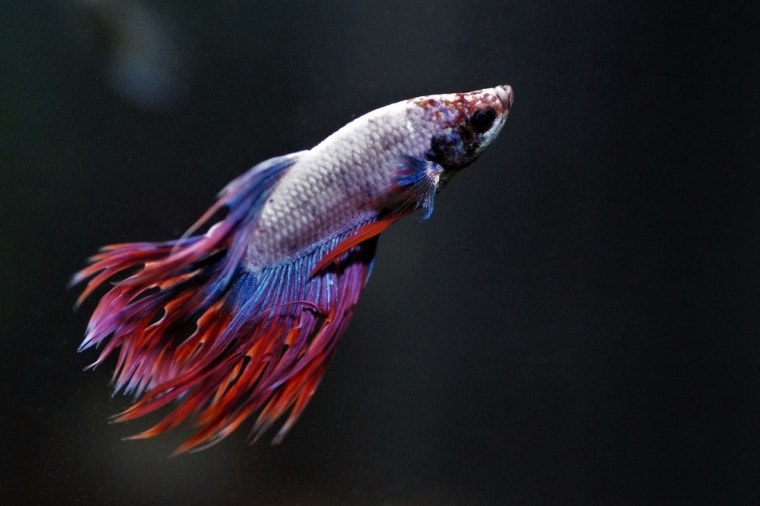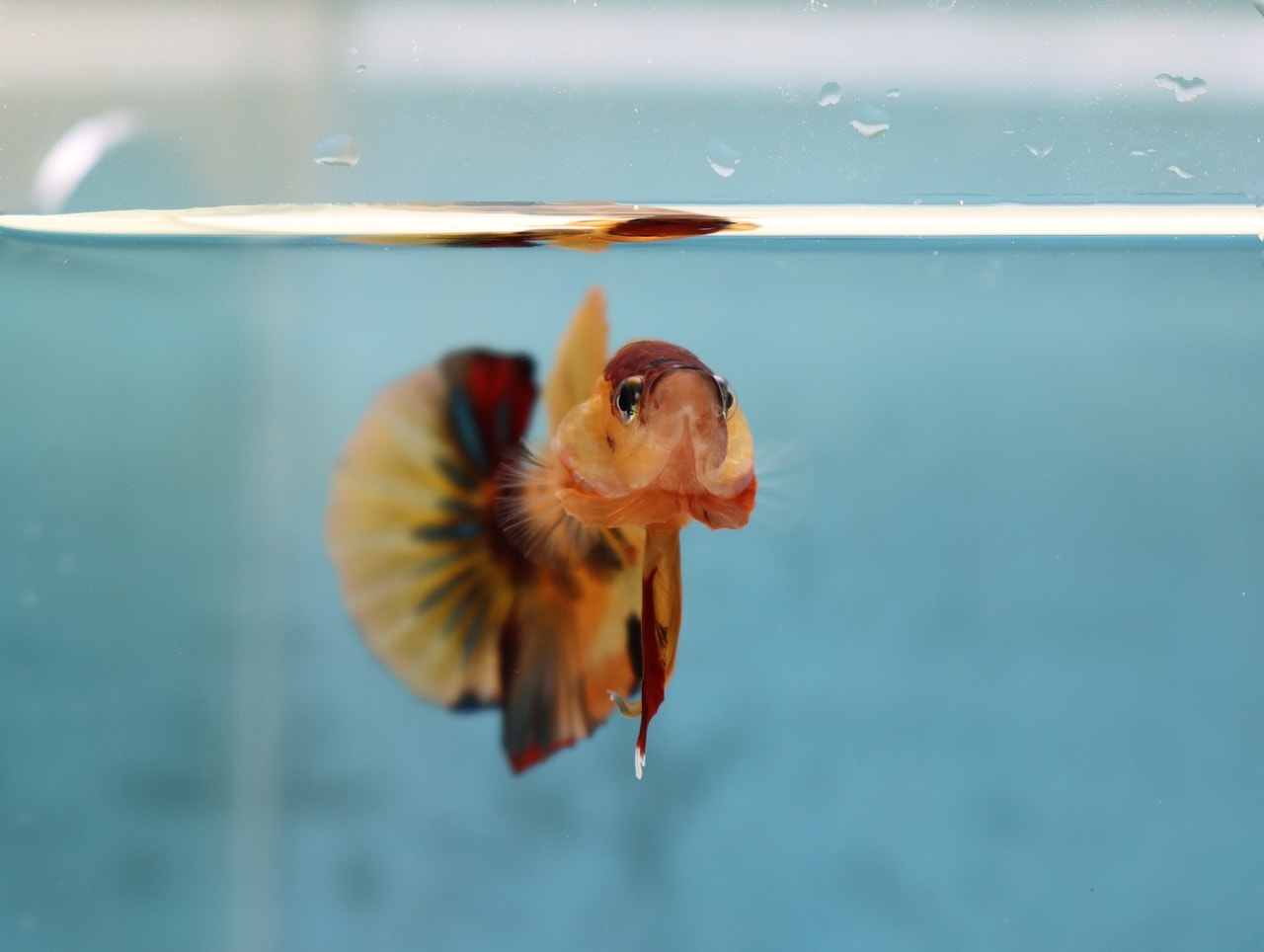How to Tell If Your Betta Fish Is Happy (3 Signs to Look For)

Betta fish, otherwise known as Siamese fighting fish, are strikingly beautiful specimens. We’ve all walked into the pet store to see the gorgeous betta display. If you decide you want one of these fish in your home, you want to make sure you’re doing your part to make their life as enjoyable as possible.
Betta fish don’t require the same extensive setup as other fish, which makes them perfect selections for first-time owners. Let’s dig a bit deeper to find out how to provide your betta with a happy life.

Normal Betta Behavior
Betta fish are active, happy little fish that don’t have any problem showing it. Betta fish will actively eat without issue and have no trouble swimming up to you if they think you might have a snack. These gorgeous fish can be quite full of personality, so expect nothing less when you own one.
Why Can’t Betta Fish Live Together?
Betta fish are—shall we say—feisty. They are highly territorial, so they are incompatible with other bettas. If they are in the same aquarium, they will literally fight to the death (their name was not created without reason).
Even though bettas are quite comfortable living by themselves, they can work in tanks with a few other fish varieties.
Some compatible fish mates include:
Tetras
Ghost shrimp
African dwarf frogs
Cory catfish
You should never pick a fish with a flowy tail, like a goldfish, since it can trigger an aggressive response. Even their own reflections can cause bettas to flare up. The fewer triggers, the better—which is why so many choose to house solitary betta fish.

How to Know Your Betta is Happy
Now, there’s no sound science that lends direct explanation to what bettas can feel. However, we can get some pretty good ideas based on the way they behave in their enclosure.
1. Bright, Vibrant Colors
Your betta should always look the way you bought them—vibrant, colorful, and lovely. Their fins should be free of debris or overgrowth with sleek scales and free-flowing fins. If you notice your fish’s colors dulling, it could be a sign that something isn’t right.

2. Freely Swimming
Your betta should zip around the cage spontaneously every so often. They should have no trouble quickly swimming up to eat their meals or get a snack. Staying at the top of the water or being hidden in coral might indicate the fish is having a health issue.

3. Coming Up to Greet You
Bettas are social and curious little fish who can be very interactive with owners. If they see you at the aquarium wall, they might come up for a quick hello. You’ll find them following your finger across the glass or surfacing for a treat.

Can Betta Fish Get Depressed?
Like any other creature, bettas can get depressed. Some signs your betta might be feeling the blues include:
- Dulling of color
- Loafing around the tank
- Lack of appetite
Because these symptoms can also point to more concerning issues, it’s best to watch for other accompanying clues.
Other Health Issues
Depression isn’t the only issue your betta can face. Some other issues require immediate action:
- Fin rot—white spots on fins
- Ich—loss of appetite, lethargy, white film on the body
- Dropsy—kidney swelling, fluid buildup, staying at the top of the water
- Popeye—might signal tuberculosis, which is deadly
- Velvet—parasitic infection, gold dust appearance
- Mouth fungus—lethargy, blotchy patches

How to Keep Your Betta Fish Happy
Bettas are usually easy keepers, not requiring some of the environmental specifics of other fish. To stay happy and live a healthy life, you need to cover all basics of betta care.
Keep their aquarium clean and debris-free
An icky aquarium can lead to all kinds of health issues for your betta. But it also makes living happily a problem. If your betta doesn’t have proper water quality, it can decrease their livelihood. Since bettas often live alone, they might not require the same maintenance as other fish.
If you don’t provide a filter for your betta, you should clean the entire aquarium once every 4-5 weeks.
Feed your betta on a schedule
Just like you, bettas look forward to their daily meals. These carnivores need a high-quality fish meal to keep their bodies in tip-top shape. You should offer your adult fish two pellets up to twice a day—but be careful not to overfeed.

Interact with your betta fish daily
Despite the fact that you can’t cuddle your fish the same way you can other pets, understand that bettas do love interacting with owners. Some get quite excited when they see your face, as this means snacks are well underway. You should never handle your betta, as this can cause unnecessary stress and potential injury.
Offer yummy treats on occasion
Betta’s love freeze-dried snacks, like bloodworms. While they will devour as much as you want to give them, it’s best to keep feedings between one and two times per week.
Let your betta live alone, if possible
Even though bettas are real beauties, these fish thrive best when they live alone. If you choose to add your betta to an existing habitat, introduce it slowly and do your research. Other fish can end up hurt or even dead if the wrong combination occurs.

Final Thoughts
Happiness is an important aspect of betta health. Like any other creature, they need proper living conditions, adequate diets, and social interaction to stay content. Be aware of any behavioral changes and look for underlying causes.
If you suspect your fish has an illness, contact your vet for further guidance. It might require medication or tank additives to clear up any potential health problems.
Featured Image Credit: Pixabay



Không có nhận xét nào